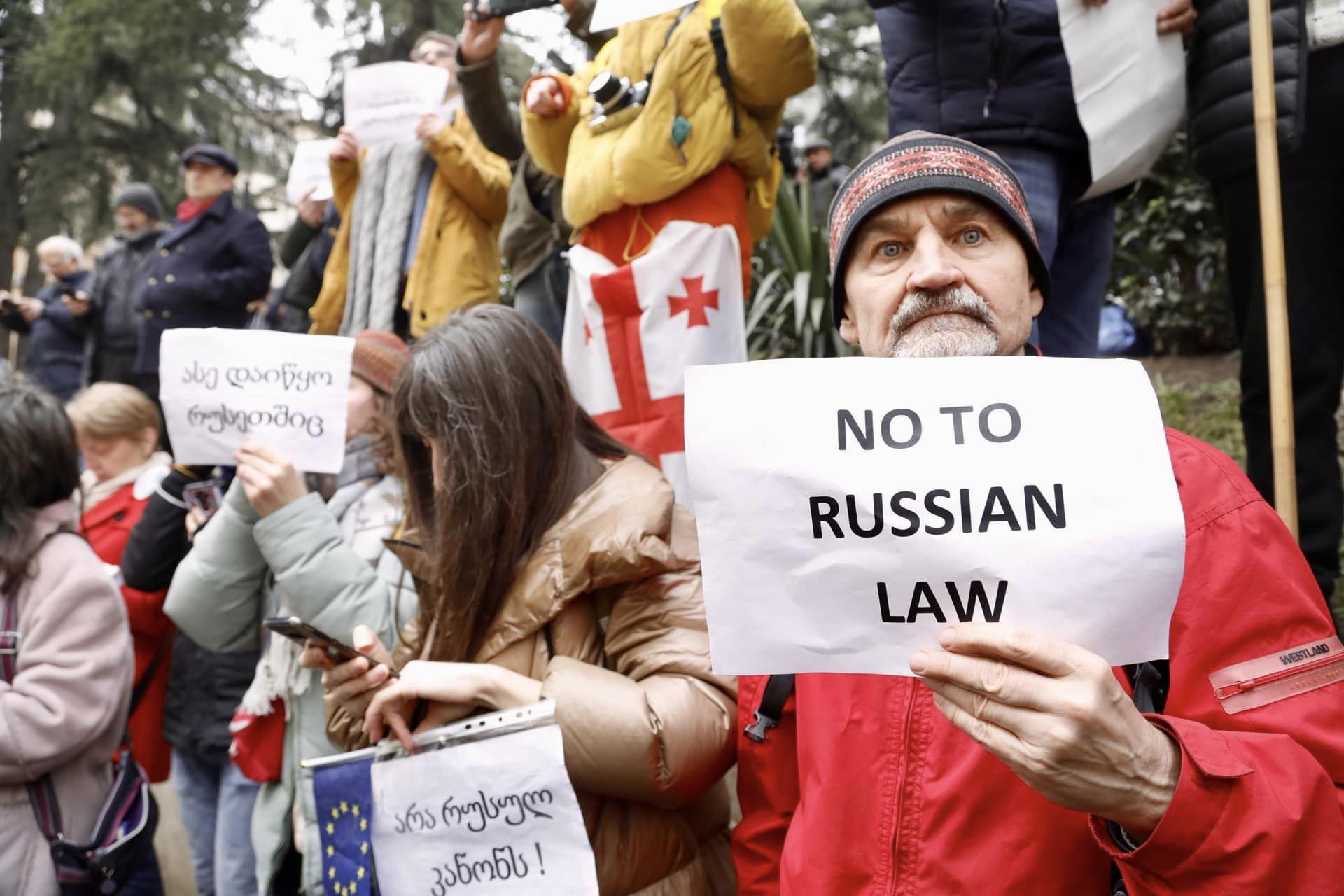Nata Koridze is the managing editor of Civil.ge
Polarization has become a scarecrow of modern Georgian political and social reality. But what local and international pundits often overlook is that polarization is just a symptom of the illness, not the disease itself.
The conventional wisdom is that polarization is bad for society and has a stifling effect on political life. It has been lamented by virtually all groups in Georgian society, but most of all, it has been demonized by the ruling party. For years, the ruling party, the Georgian Dream, has portrayed polarization as the main villain of Georgian society and has placed the blame entirely on the so-called “destructive” opposition (led by the United National Movement” as they would often claim) while denying any shred responsibility of its own.
Exasperated by the bickering Georgian politicians, the European Union also posited depolarization as the first of its 12 demands for Georgia to get the candidacy.
This inadvertently has provided the ruling party with an additional argument and fervor to misuse and manipulate the “polarization” discourse.
The ruling party has been deliberately using this term as a smokescreen for achieving its political objectives – to get rid of the opposition, which it has gradually expanded from its archenemy, the UNM, to include civic activists and institutions such as the European Parliament.
The ultimate objective is the consolidation of power. “Depolarization” in their minds means suppressed dissent, absence of criticism and alternative opinions, and no freedom of expression.
Indeed, it would have been nice if contentious issues were less contentious, or the debates were less heated, and if Georgians lived in relative peace and harmony with each other agreeing on most issues. And perhaps, one day, we will.
But for that to happen, we need strong institutions, viable human rights protection mechanisms, the rule of law and good governance, and genuinely free and fair elections that allow for regular changes of power.
These are the prerequisites for a society without a high degree of polarization simply because such an institutional and social setup is conducive to managing frustrations and decreasing hostility. Functioning democracy channels the steam of political struggle through the pipes of the civilized contest and into the gearbox of the alternance of power. That’s how democracies work. That’s what the fulfillment of our European and Euro-Atlantic aspirations will bring.
But these prerequisites are currently absent in Georgia. And the change of power is not part of the ruling party’s plans. It is no coincidence that the ruling majority has initiated the law on foreign agents, the same law that had marked the new era in Russia, the era of a fierce onslaught on dissenting opinion and the freedom of speech.
And it is no coincidence that top GD officials linked the law with a polarization “problem” – party leader Irakli Kobakhidze stated that this law would serve to reduce polarization in Georgian society. He explained that western funding – to activist movements, to environmental movements, to election watchdogs, to support minorities – fuels polarization and that cutting this funding would reduce it.
The ruling party sets the tone for the political discourse. Senior cabinet members and party officials, on many occasions, have exacerbated the polarization in society and helped tip it towards violence and bitter division.
The PM’s address on the morning of July 5, 2021, before the LGBT pride event, has been viewed (most notably by radical nationalist groups) as a green light to attack LGBT persons, CSOs, and journalists. The Prime Minister’s speeches in the Parliament, including the most recent one taking stock of the government work in 2022, were full of blame, name-calling, shame, and hostility. The top GD figures, such as the Deputy Prime Minister, Tea Tsulukiani, GD Chair Irakli Kobakhidze, and leader of the Parliamentary majority Mamuka Mdinaradze, are all known for their inflammatory language and divisive rhetoric.
Where Georgia stands now, “polarization” is synonymous with the ability to speak out against the deeds and words of the ruling majority and can no longer be assigned to the deficit of democratic culture. Polarization, expressed in protest against the proposals that would turn Georgia from the European path, quash human rights, and violate its Constitution, is comparable to a high fever that fights the deadly infection. This is a sign that the political organism is fighting, that it is alive. A sign that we can still express our views.
It is counterproductive and naïve to demand that Georgians who see their European future and a historic chance slip from their fingers be less outraged and thus allow the GD to continue manipulating this issue.
Georgians are speaking out, whether one likes it or not. And that is what matters now.
Want to hear other opinions?
- Lika Chkhetiani: Polarization Pays
- Hans Gutbrod: Refeudalization rather than Polarization
- CRRC: Personalities, not Policies Divide Georgian Voters
